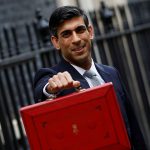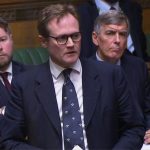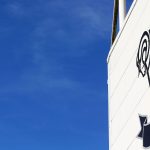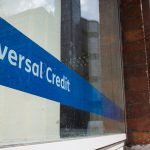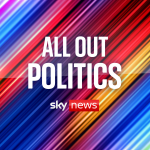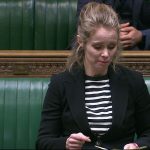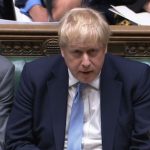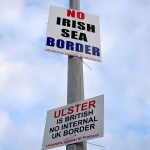Boris Johnson is considering the imposition of fresh coronavirus restrictions in England and a move to Plan B of the government’s strategy for dealing with COVID-19 this winter.
Following the discovery of the Omicron variant, which Downing Street fears is more transmissible than the Delta variant, the prime minister is mulling tougher measures to slow the spread of cases.
Senior government sources revealed Mr Johnson is minded to move to Plan B as early as this week, with the introduction of COVID vaccine passports and a return to the work from home order for millions of people.
Please use Chrome browser for a more accessible video player
The prime minister and his cabinet ministers are said to have received a downbeat assessment from England’s chief medical officer, Professor Chris Whitty, and chief scientific adviser, Sir Patrick Vallance, on the current coronavirus situation on Tuesday.
The sources told Sky News the prime minister is worried that, if he doesn’t act now, he could regret not taking tougher action in a month’s time.
Under the government’s Plan B for dealing with winter pressures in the NHS, which it detailed in September, ministers said that contingency measures to deal with COVID-19 would include a strengthening of government messaging, the possible introduction of COVID vaccine passports in some settings, mandatory face mask wearing, and a return to work from home guidance.
Mr Johnson has already reintroduced mandatory face mask wearing on public transport and in shops, as well as other settings in England, since the discovery of the Omicron variant.
COVID: Stereophonics gigs pushed back amid rising Omicron cases – as performers’ union calls for enforced masks
Radio silence from Downing Street suggests PM’s team know their ‘party’ explanation is unsustainable
‘Christmas parties’, denials and COVID rules timeline: What happened in Downing Street last year?
He has also toughened travel restrictions and put vast swathes of southern Africa on the UK’s travel red list.
Should further measures be announced by the prime minister in the coming days, some will question the timing of the action when both Mr Johnson and senior Number 10 staff are facing a furious backlash over an alleged Downing Street Christmas party last year when strict COVID rules were in place.
Dominic Cummings, Mr Johnson’s former chief adviser who is now a fierce critic of the prime minister, suggested a move to Plan B would be a “dead cat” to distract from the scandal.
Meanwhile, amid the row and following the UK’s vaccine rollout, a senior Conservative MP publicly questioned whether any new COVID measures could be anything other than “advisory”.
“I think now that, going forward, any measures will be advisory,” Sir Charles Walker told Times Radio.
“I think it would be very difficult to enshrine them in law and then once again ask our poor police forces to enforce them.”
Labour MP Chris Bryant said: “The problem is, nobody will respect rules imposed by a government that doesn’t abide by them itself. So our medical safety is squandered.”
Follow the Daily podcast on Apple Podcasts, Google Podcasts, Spotify, Spreaker
Following the discovery of the Omicron variant, a prominent member of the Scientific Advisory Group for Emergencies (SAGE) said that a new COVID lockdown “certainly might be possible at the current time”.
Professor Neil Ferguson, from Imperial College London and whose data was instrumental to the UK going into its first lockdown in March 2020, told the BBC that Omicron cases were “accelerating very fast”.
“It will be up to the government to decide what to announce in the coming days and weeks,” he said, speaking in a personal capacity.
“There is a rationale, just epidemiologically, to try and slow this down, to buy us more time principally to get boosters into people’s arms, because we do think people who are boosted will have the best level of protection possible, but also to buy us more time to really better characterise the threat.”
Downing Street sources said that “no decisions have been made” over the possible imposition of fresh restrictions to combat the spread of coronavirus.



